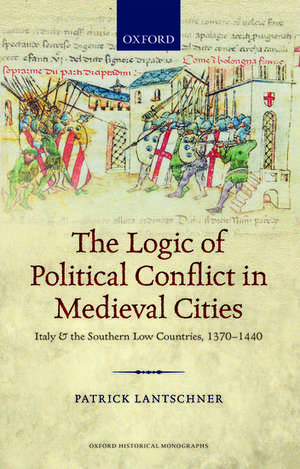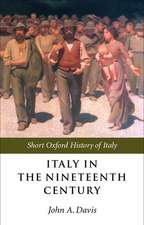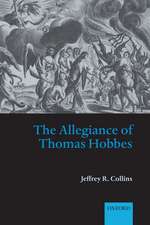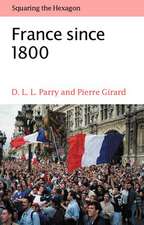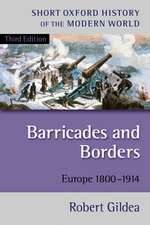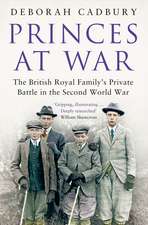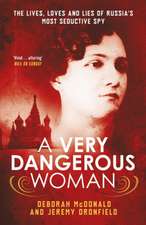The Logic of Political Conflict in Medieval Cities: Italy and the Southern Low Countries, 1370-1440: Oxford Historical Monographs
Autor Patrick Lantschneren Limba Engleză Hardback – 26 mar 2015
Din seria Oxford Historical Monographs
- 19%
 Preț: 497.26 lei
Preț: 497.26 lei - 18%
 Preț: 310.34 lei
Preț: 310.34 lei - 30%
 Preț: 539.99 lei
Preț: 539.99 lei - 15%
 Preț: 244.01 lei
Preț: 244.01 lei - 13%
 Preț: 532.53 lei
Preț: 532.53 lei - 30%
 Preț: 500.22 lei
Preț: 500.22 lei - 30%
 Preț: 497.67 lei
Preț: 497.67 lei - 30%
 Preț: 499.18 lei
Preț: 499.18 lei - 30%
 Preț: 498.68 lei
Preț: 498.68 lei - 30%
 Preț: 604.80 lei
Preț: 604.80 lei - 30%
 Preț: 497.63 lei
Preț: 497.63 lei - 24%
 Preț: 496.31 lei
Preț: 496.31 lei - 30%
 Preț: 498.68 lei
Preț: 498.68 lei - 22%
 Preț: 497.81 lei
Preț: 497.81 lei - 25%
 Preț: 556.27 lei
Preț: 556.27 lei - 14%
 Preț: 539.57 lei
Preț: 539.57 lei - 30%
 Preț: 500.29 lei
Preț: 500.29 lei - 13%
 Preț: 533.57 lei
Preț: 533.57 lei - 25%
 Preț: 569.72 lei
Preț: 569.72 lei - 30%
 Preț: 610.82 lei
Preț: 610.82 lei - 34%
 Preț: 1153.34 lei
Preț: 1153.34 lei - 51%
 Preț: 614.88 lei
Preț: 614.88 lei - 34%
 Preț: 1195.31 lei
Preț: 1195.31 lei - 34%
 Preț: 1035.84 lei
Preț: 1035.84 lei - 34%
 Preț: 1006.40 lei
Preț: 1006.40 lei - 29%
 Preț: 864.39 lei
Preț: 864.39 lei - 34%
 Preț: 1160.09 lei
Preț: 1160.09 lei - 34%
 Preț: 1432.67 lei
Preț: 1432.67 lei - 31%
 Preț: 328.46 lei
Preț: 328.46 lei - 34%
 Preț: 573.88 lei
Preț: 573.88 lei - 34%
 Preț: 1069.36 lei
Preț: 1069.36 lei - 34%
 Preț: 1004.62 lei
Preț: 1004.62 lei - 31%
 Preț: 329.49 lei
Preț: 329.49 lei - 34%
 Preț: 1153.28 lei
Preț: 1153.28 lei - 34%
 Preț: 1254.68 lei
Preț: 1254.68 lei - 34%
 Preț: 946.79 lei
Preț: 946.79 lei - 34%
 Preț: 962.63 lei
Preț: 962.63 lei - 34%
 Preț: 1126.38 lei
Preț: 1126.38 lei - 31%
 Preț: 469.27 lei
Preț: 469.27 lei - 23%
 Preț: 332.21 lei
Preț: 332.21 lei - 28%
 Preț: 374.93 lei
Preț: 374.93 lei - 34%
 Preț: 1049.14 lei
Preț: 1049.14 lei - 34%
 Preț: 1036.73 lei
Preț: 1036.73 lei - 51%
 Preț: 757.67 lei
Preț: 757.67 lei - 34%
 Preț: 1082.61 lei
Preț: 1082.61 lei - 34%
 Preț: 1155.39 lei
Preț: 1155.39 lei - 31%
 Preț: 328.53 lei
Preț: 328.53 lei - 34%
 Preț: 1110.12 lei
Preț: 1110.12 lei - 31%
 Preț: 486.41 lei
Preț: 486.41 lei - 34%
 Preț: 1153.41 lei
Preț: 1153.41 lei
Preț: 729.08 lei
Preț vechi: 1048.85 lei
-30% Nou
Puncte Express: 1094
Preț estimativ în valută:
139.54€ • 143.81$ • 117.81£
139.54€ • 143.81$ • 117.81£
Carte tipărită la comandă
Livrare economică 20-26 februarie
Preluare comenzi: 021 569.72.76
Specificații
ISBN-13: 9780198734635
ISBN-10: 0198734638
Pagini: 290
Ilustrații: 4 maps
Dimensiuni: 147 x 222 x 23 mm
Greutate: 0.47 kg
Editura: OUP OXFORD
Colecția OUP Oxford
Seria Oxford Historical Monographs
Locul publicării:Oxford, United Kingdom
ISBN-10: 0198734638
Pagini: 290
Ilustrații: 4 maps
Dimensiuni: 147 x 222 x 23 mm
Greutate: 0.47 kg
Editura: OUP OXFORD
Colecția OUP Oxford
Seria Oxford Historical Monographs
Locul publicării:Oxford, United Kingdom
Recenzii
In this brilliant book, Patrick Lantschner offers new insight into urban revolts in the later Middle Ages ... Lantschner's argument is convincing, not least because of the richness of his book ... We can therefore only hope that Lantschner's analysis will provoke other historians to study the 'earlier' political development of cities in particular and urban history in general from a similar comparative perspective.
this is an excellent monograph and is very well written, providing a detailed overview of complex ideas and situations and in doing so adding an important civic dimension to political studies of state formation ... an impressive book bringing in a range of examples and offering an interesting mix of well-studied cases and less well-known ones ... Lantschner has managed to fit an impressive amount into a short and easy to read survey of six complex situations, and has used them to offer a new political account of the later Middle Ages.
Lantschner offers his readers a careful, thorough, and insightful analysis ... [a] deeply compelling model of urban conflict, which offers historians a powerful set of tools for understanding political life in medieval cities.
Patrick Lantschner's The Logic of Political Conflict in Medieval Cities: Italy and the Southern Low Countries, 1370-1440 is an impressive study of how politics "worked" in the cities of the southern Low Countries and Italy during the late Middle Ages.
remarkable detail based on deep archival research
impressive
this is an excellent monograph and is very well written, providing a detailed overview of complex ideas and situations and in doing so adding an important civic dimension to political studies of state formation ... an impressive book bringing in a range of examples and offering an interesting mix of well-studied cases and less well-known ones ... Lantschner has managed to fit an impressive amount into a short and easy to read survey of six complex situations, and has used them to offer a new political account of the later Middle Ages.
Lantschner offers his readers a careful, thorough, and insightful analysis ... [a] deeply compelling model of urban conflict, which offers historians a powerful set of tools for understanding political life in medieval cities.
Patrick Lantschner's The Logic of Political Conflict in Medieval Cities: Italy and the Southern Low Countries, 1370-1440 is an impressive study of how politics "worked" in the cities of the southern Low Countries and Italy during the late Middle Ages.
remarkable detail based on deep archival research
impressive
Notă biografică
Patrick Lantschner works and teaches on Europe and the Islamic world in the later Middle Ages. Prior to coming to UCL, he was a Junior Research Fellow at Merton College, Oxford, and taught at Cambridge. He has published on medieval cities in Europe and the Islamic world, and is broadly interested in societies in which the state is but one of a number of players. He takes a keen interest in comparative and transnational history, and has worked with scholars from anthropology, law, and oriental studies.
